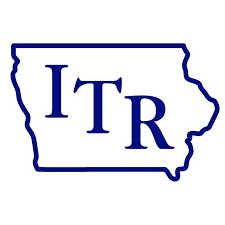Rural economy slows as concerns in ag sector and supply chain and labor challenges persist

BPC Staff Aug 19, 2022 | 8:08 pm
2 min read time
440 wordsAll Latest News, Economic Development, Statewide NewsIowa’s rural economy slumped in August with weaker scores in hiring and farmland prices, according to a survey of rural bank managers.
According to Creighton University’s Rural Mainstreet Index, Iowa’s score fell to 40.1 in August, down from 45.1 in July. The index ranges from zero to 100 with a score of 50 representing neutral growth over the next three to six months.
Iowa’s farmland price index decreased to 63.5 in August, down from 68.4 in July. The state’s new hiring index also fell, with a score of 55.9, down from 58.7 in July.
The survey covers a 10-state region focusing on about 200 rural communities with an average population of 1,300 people.
For the region, the index fell to 44 in August, down from a score of 46 in July, the second consecutive month it was below growth neutral and the fifth straight month it has declined.
Ernie Goss, Creighton University’s chair of regional economics, said the index is showing a downturn in economic activity in the region, including Iowa.
“Supply chain disruptions from transportation bottlenecks and labor shortages continue to constrain growth,” he said. “Farmers and bankers are bracing for escalating interest rates and falling farm commodity prices.”
According to the survey, more than half of the bankers indicated they expect the recently approved Inflation Reduction Act will lead to increased inflation and add to the federal deficit.
Bankers also named drought as a major concern, according to the report released Thursday.
Despite the slowing economy and challenges with agricultural input prices, the confidence index rose in August to 38, up from 26 the previous month.
Declines in the ag sector also were creating concern among bankers, the survey showed.
The index for farm equipment sales dropped to its lowest level in two years, falling to 45.9, down from 56.5 in July, the first decline in the index after 20 consecutive months of advances.
Despite increased prices, the farmland price index also declined. Although still above growth neutral, August’s score of 60 was the lowest index reading since February 2021.
On a positive note, bankers expect a 1.7% decline in farm loan delinquencies over the next 12 months, the report showed.
In other areas of the report, the new hiring index for the region fell as labor shortages continued to be a challenge, and the home-sales index dropped to 44, down from 48 in July. The retail sales index improved to 48, up from 46 last month.
“Rising energy prices and higher interest rates reduced home and retail sales on rural main street,” Goss said in the report. “This is the lowest home sales index since December 2018.”










